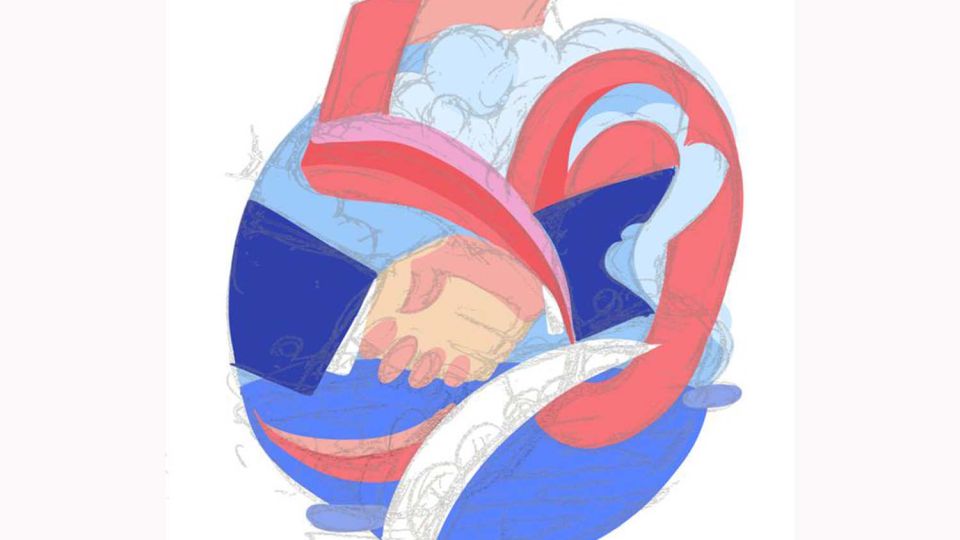February 21, 2022
BEIJING – This month marks the 50th anniversary of an event so momentous that it’s been called “the week that changed the world”. In February 1972, then US president Richard M. Nixon, one of America’s foremost anti-communist politicians, made a historic trip to China. For many, Nixon’s meeting with Chairman Mao Zedong seemed inconceivable. And the fact that Chinese leaders were receptive to US overtures culminating in Nixon’s visit was just as shocking.
For the United States, the rapprochement with China was driven largely by three considerations. Perhaps foremost, Nixon believed the opening would prove helpful in the global struggle against the Soviet Union. As Nixon explained later, “the China game made the Russian game work”.
Second, Nixon had inherited an unpopular war in Vietnam and hoped Beijing might pressure Hanoi to make concessions conducive to an “honorable” US withdrawal.
And third, always the politician, Nixon figured that his “remarkable statesmanship” might enhance his re-election prospects in 1972. As for Taiwan, it appeared to be relegated to a relatively minor role.
For the Chinese side, Beijing’s leadership shared Washington’s concerns about Moscow’s growing power. A series of clashes along the Sino-Soviet border in 1969 had sparked concerns that a much larger conflict might be on the horizon. As for Vietnam, the Chinese side offered Henry Kissinger, then US national security adviser, some sage advice during his secret meeting with Premier Zhou Enlai on July 29, 1971. Zhou suggested, “Let the Vietnamese solve their own problems… the greatest honor would be a glorious withdrawal.”
With respect to Taiwan, the US’ continued support for the island outpost represented a paramount concern. This point was driven home repeatedly during meetings with US officials.
In their memoirs, both Nixon and Kissinger have stressed that their negotiations with Chinese leaders focused largely on issues other than Taiwan. This is incorrect. According to declassified US documents, during Kissinger’s first meeting with Zhou Enlai in 1971, discussions focused largely on Taiwan and Vietnam. Zhou emphasized that, “it is quite clear that in the relations between our two countries… Taiwan is the crucial issue”.
In response, Kissinger pledged that the US does not support “two Chinas” or “one China, one Taiwan”.
When asked whether Washington supported “Taiwan independence”, Kissinger said, “we would not support this”. When asked if the CIA supported Taiwan independence, Kissinger joked that the agency’s power was exaggerated. And after Zhou Enlai complained that some US bureaucrats described Taiwan’s status as “undetermined”, Kissinger pledged that it wouldn’t happen again.
In fact, Kissinger appeared to concede that Taiwan would eventually become a part of the People’s Republic of China. He assured Zhou that Taiwan’s “political evolution is likely to be in the direction which Prime Minister Zhou Enlai indicated”.
When Nixon arrived in Beijing on Feb 21, 1972, he was prepared to discuss Taiwan. In his handwritten notes, Nixon described Taiwan as an “irritant” standing “in the way of the new course”. He had also scribbled the US position as “one China, Taiwan is part of China”, “won’t support Taiwan independence”, and “will seek normalization”.
At Nixon’s meeting with Chairman Mao on Feb 21, Taiwan was the first matter raised. Mao pointedly reminded Nixon that he had known Chiang Kai-shek much longer than the Americans.
On Feb 22, Taiwan was the first matter Nixon discussed with Zhou Enlai. The US president outlined “Five Principles” of US policy that Zhou “could count on no matter what we say on other topics”. The first was “there is one China and Taiwan is a part of China”.
The second was “we have not and will not support any Taiwan independence movement”.
Third, Nixon promised the US would “discourage Japan moving into Taiwan”.
Fourth, he pledged the US would support “any peaceful resolution of the Taiwan issue” and “not support” any military moves by Taiwan to retake the mainland.
And fifth, the US president pledged that “we seek the normalization of relations with the People’s Republic”.
Before shifting to other topics, Nixon warned Zhou that the Taiwan issue represented “a danger to the whole initiative”. He advised that any agreements must be drafted carefully because “our problem is to be clever enough to find language which will meet your need yet does not stir up the animals so much that they gang up on Taiwan (policy) and thereby torpedo our initiative”.
So, how did Nixon’s trip to China influence the US’ Taiwan policy?
It is noteworthy that Nixon unequivocally agreed that “Taiwan is a part of China”. This position is “acknowledged” in US versions of the three US-China communiques.
Also, in 1998, Bill Clinton became the first (not the last) president to declare that, “We don’t support independence for Taiwan, or ‘two Chinas,’ or ‘one Taiwan, one China’.” When criticized, he explained that he was reiterating a longstanding policy.
Besides, Nixon not only promised to support “any peaceful resolution of the Taiwan issue”, but also asserted on Feb 23, 1972, that he was serious about the matter. When Zhou said that “we are not asking you to remove Chiang Kai-shek. We will do that ourselves”, Nixon replied, “peacefully.” In response, Zhou said, “yes, we have self-confidence.”
The US remains committed to a peaceful resolution of the Taiwan question.
In conclusion, Nixon’s trip to China provided the foundation for the eventual establishment of diplomatic relations and shaped the broad contours of the US’ policy toward Taiwan. And while there are many contentious issues that appear to divide Washington and Beijing today, only one holds the potential to cause relations to hit rock bottom and turn a “war of words” into a “shooting war”-and that is the Taiwan question. It is for this reason that Washington ought to refrain from using Taiwan as a “poker chip” in disputes with Beijing.
The author is a distinguished professor emeritus at Missouri State University. The views expressed in this essay are the author’s own and do not necessarily reflect those of China Daily.


